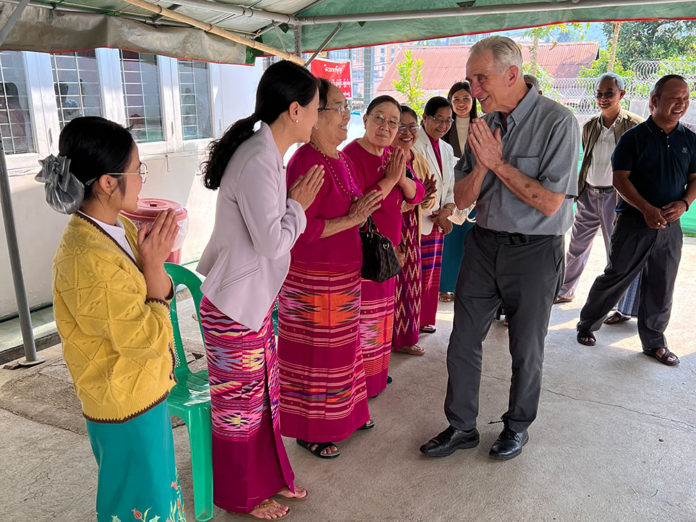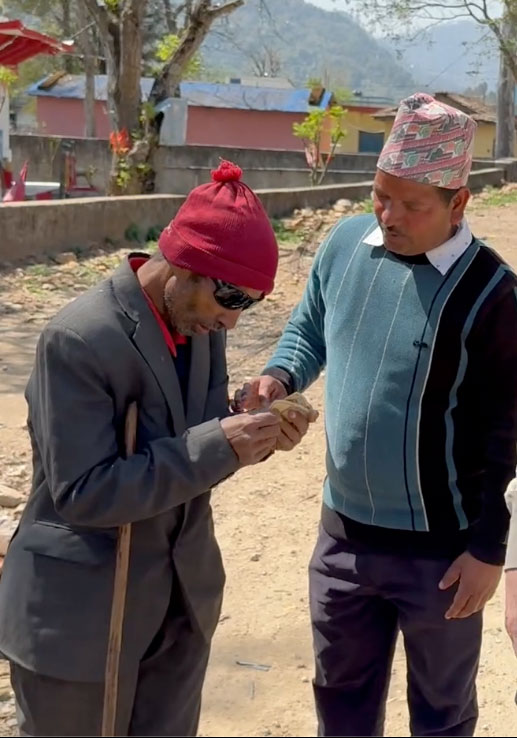
By Dr. Gary Barth
I was flying from Nepal to Bangkok when the 7.7-magnitude earthquake struck Myanmar. Mid-flight on March 28, news alerts began sounding. On landing, I learned that a massive earthquake had hit Myanmar, not far from where we had been working days earlier.
Just hours earlier, I had been in the Himalayas helping open BBH Eye Foundation’s 25th Primary Eye Care Center—our team had performed 100 cataract surgeries in 30 hours. One patient stood out: Deaf and blind for years, he walked unaided the next morning. The first thing he saw clearly was a small donation, held gently in his hands.

Communication into the country was nearly impossible at first. Internet and mobile networks were down. My co-founder Jack Blanks and I scrambled to reach our partners on the ground. The waiting was agonizing.
Eventually, word came through: Our local colleagues were safe, and the charity eye hospital we support had sustained only minor damage. But the quake added new urgency to an already critical situation.
Since the 2021 coup, Myanmar’s military has revoked the licenses of more than 1,000 doctors for refusing to work under the regime. Of the 46 monastery-based eye hospitals that once operated across the country, just two remain.
We work with one of them, tucked between Yangon and the military capital—performing more than 5,000 surgeries per year in conditions that demand resilience, discretion and deep local trust.
This trip also marked a shift in our mission: BBH Eye Foundation is now accelerating efforts to launch an ophthalmic assistant training program in Myanmar—a vital pipeline of credentialed, culturally grounded care workers who can diagnose cataracts, refer patients, and prescribe glasses in remote areas where no doctors remain and local dialects are spoken.
Even as I return home, the work carries on. The earthquake shook us. It also clarified our path forward.
Dr. Gary Barth is an ophthalmologist with a practice in Healdsburg, and is co-founder of the BBH Eye Foundation.







